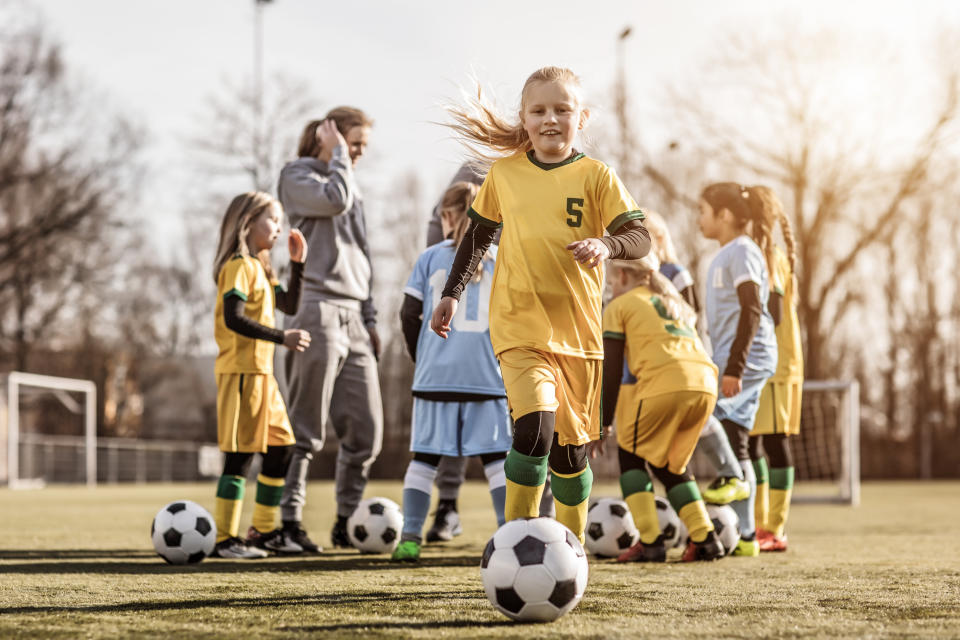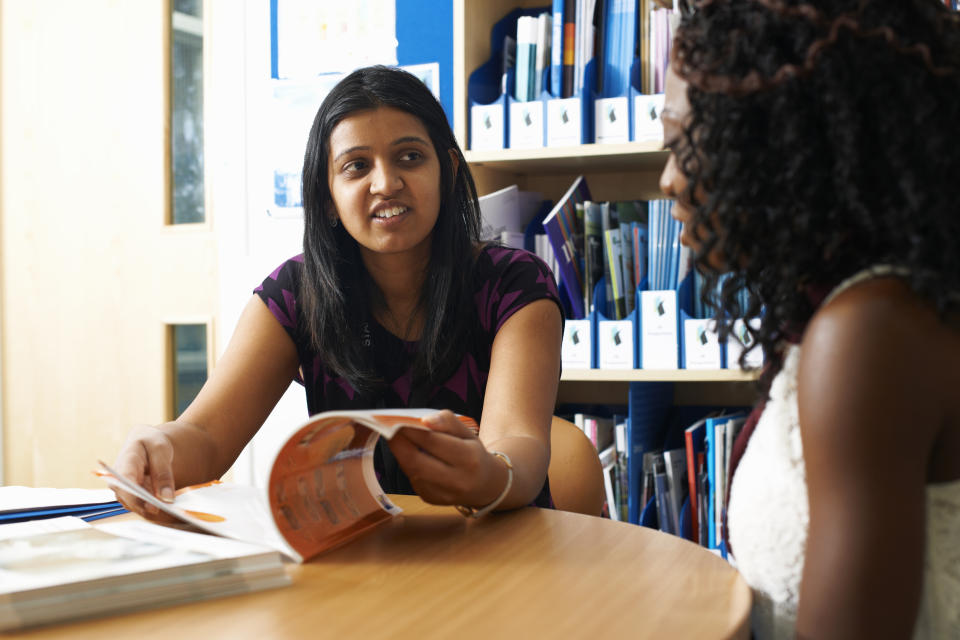Experts say mentors are important for kids to have – here's how to find one

Research – and common sense – tell us that mentoring is good for kids.
Kids who are mentored tend to report greater psychological wellbeing and less anxiety, as well as better self-esteem. These kids are more likely to finish school, less inclined to use drugs and alcohol, and, if they’re girls, they’re less likely to bully.
A mentor can help a child in a variety of ways, from coping with a learning difficulty or challenge to helping a teen professionally, by actively introducing them to relevant contacts or offering them internships and work experience.
Mentors share their time, their skills and their knowledge with their mentee, often encouraging them to try something different or challenging them to undertake a task that might seem beyond their scope – until the child tries, that is.
Mentors offer something that parents and teachers can’t: they can listen, provide support, set goals – and do all of this without judgement (parents and teachers have to be more restrictive). Some mentors can also be helpful for children because they’ve been through similar challenges and have learned to overcome them.
READ MORE: Female STEM role models to look up to
Kids can have different kinds of mentors, like natural mentoring relationships, typically with family members and family friends, community or school-based mentors, or mentors that a child may get to know outside of the classroom.
As well as adults mentoring kids, older children can also mentor younger ones, a great way to get kids excited and confident about trying out a new sport or moving up to a new year group at school – an exciting but scary prospect for many.
Keen to find a mentor for your child? Here’s how to do it.

Surround them with potential mentors
A mentor relationship for a child doesn’t need to be super-formal – are there qualities that you like in their babysitter or French teacher that you’d like to see your child develop? Getting your kids to know the adults in their community: the lollipop lady, the nurse at the surgery, the local vet, your church leader, their godparent, will get your kids asking questions. They’ll wonder what certain jobs entail, what people’s interests are and they’ll be curious about how people got into their chosen professions. Look at school, too: teaching assistants who are particularly keen on a language, art or sport can turn into potential mentors for your child.

Ask around
Is your neighbour an amazing baker (and is your child, as it happens, cookery-obsessed?) Or perhaps they want to coach tennis to youngsters because they feel so inspired by their own instructor. If your child has identified a mentor they’d like, have your child volunteer to help them out. If someone is keen and shows an interest, one job should quickly lead to others and the mentor-mentee relationship can form organically, just like that. It’s essential that this is something your child really wants, however – a parent shouldn’t approach a potential mentor for their child (it screams pushy parent, disinterested child). In fact, other than ensuring your child’s safety, a parent’s best bet is to not interfere too much in the mentor-child relationship.
READ MORE: 6 little things you can do to inspire a girl today

Find an organisation that can pair your child with a mentor
There are a wealth of kick-ass organisations out there with the power to connect girls to sources of support. Girls involved in Rainbows and Brownies can meet mentors – their scout leaders – through Girlguiding UK – as well as learn all sorts of collaborative, social and life skills as part of the process. The Girls’ Network pairs girls from disadvantaged communities with a mentor – and also connects them with a network of professional role models. Girls Out Loud also runs a Big Sister mentoring scheme. For those keen on getting into STEM, Stemettes offers a Sherpa programme.

Keep to a schedule
There is no one right way to make a mentoring relationship work, but studies have shown that both the intensity of the mentoring (e.g. consistent contact is crucial) and duration of the relationship (mentorships that lasted a year or more were most beneficial, according to research) are critical in order to get the most positives out of mentoring.
READ MORE: The trailblazing women your daughter should know about


